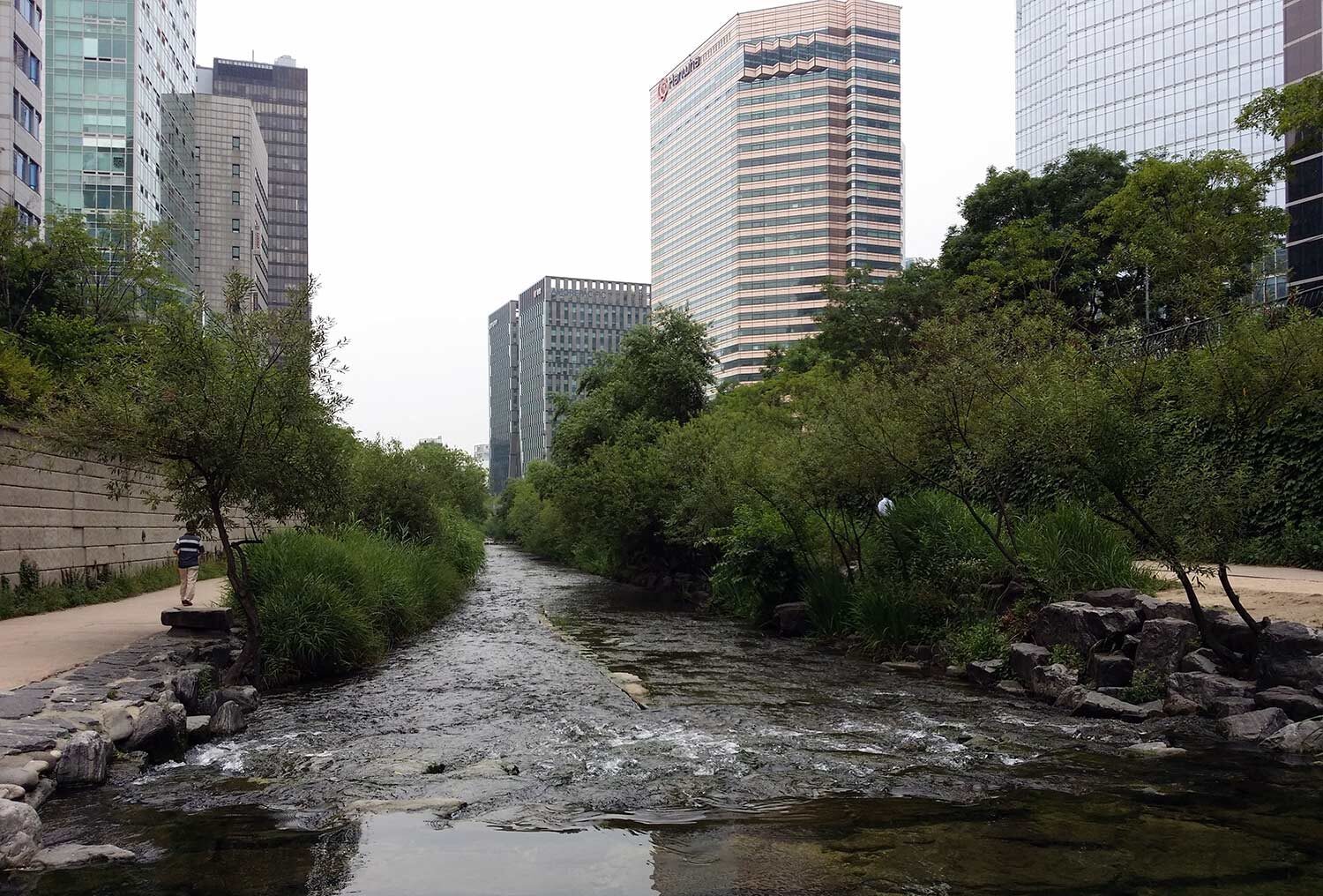Modules
- MOD Urban Resilience Theory
- MOD Built Environment Resilience
- MOD Green Infrastructures
- MOD Community Resilience
- MOD Urban Resilience Implementation
- News and Career Paths
 This module provides students with a multidisciplinary introduction of resilience and how it relates to cities. The purpose is also to align different students’ backgrounds with the challenges of global urbanisation processes from a socio-economic, climatic and environmental changes point of view.
This module provides students with a multidisciplinary introduction of resilience and how it relates to cities. The purpose is also to align different students’ backgrounds with the challenges of global urbanisation processes from a socio-economic, climatic and environmental changes point of view.
The evolution of risk assessment methods are briefly explored in order to better understand the recent shift from risk management to resilience and thus explore in depth the complex relationship between vulnerability and resilience. A second milestone of this module is to address the differences between urban sustainability and resilience, sometimes used interchangeably by policy agendas but meaning completely different things.
Along the module, students are exposed to discussions with researchers, but also with practitioners, policy makers or consultants, to explore theories, frameworks, but also the New Urban Agenda, or specific framework proper understanding of resilience theory and practices.
Built Environment Resilience
 This module has been thought to explore the meanings, approaches, methods and tools for the planning and policies related to the resilience of the built environment and infrastructures. Students will get an overview of critical infrastructure, exploring engineering, planning and social sciences approaches to assess them. A G.I.S brief course helps in understanding how a risk map is built, and to get how critical infrastructures are displayed.
This module has been thought to explore the meanings, approaches, methods and tools for the planning and policies related to the resilience of the built environment and infrastructures. Students will get an overview of critical infrastructure, exploring engineering, planning and social sciences approaches to assess them. A G.I.S brief course helps in understanding how a risk map is built, and to get how critical infrastructures are displayed.
A specific course on a tool (software) for assessing critical infrastructure vulnerability and resilience is helping student to get some practical skills about how to handle the complexity of networks resilience within the built environment.
This module learning path offer an in depth learning experience slowsly shifting form centralized toward decentralized and distributed infrastructures systems. Students will visit underground flooding deposits as urbanizations adopting decentralized water management approaches to deal with flooding and drought. Most of critical infrastructures and their relation of interdependencies will be explored while addressing the built environment resilience, navigating along different resilience projects, partners and experts teaching at the master.
Students could also chose some optional courses in this module from the Politecnico di Torino, Aalborg or Naples universities, which offer masters of engineering and design for climate resilience in partner with this master program. This way students could get the opportunity to enrich their academic track record.
Green Infrastructures
 After the Millennium Ecosystem Assessment in 2005, green infrastructure role in cities has been increasingly promoted, because of their ecosystem services contributing to lower the risks and contribute to urban sustainability. This module explores the frameworks and applications of green infrastructures, how these relate to ecosystem services and disservices, and how concepts and application evolved to the latest concept of “Nature Based Solutions”.
After the Millennium Ecosystem Assessment in 2005, green infrastructure role in cities has been increasingly promoted, because of their ecosystem services contributing to lower the risks and contribute to urban sustainability. This module explores the frameworks and applications of green infrastructures, how these relate to ecosystem services and disservices, and how concepts and application evolved to the latest concept of “Nature Based Solutions”.
A critical perspective on both frameworks and applications will introduce students in understanding the limitations of nature base solutions, particularly related to groups (issues of gender, or classes) or spatial scales (who is benefiting where, and who is not and actually suffering potential green-gentrification).
Within the module there will also be a course providing methodological approaches for the geospatial analysis of urban ecosystem services, with a focus on those services most contributing to urban resilience and climate change adaptation (e.g., runoff control, urban cooling, air purification).
The course will showcase some examples of spatially-explicit ecosystem service assessments involving different quantitative methods, including look-up tables (ecosystem service matrix), proxy-based models (e.g. ESTIMAP) and process-based models (i-Tree Eco). The mapping of urban ecosystem services will address its supply (i.e., the capacity of urban green infrastructure to provide benefits to people), but also its actual flow and demand, including how to analyze potential inequities in the access to these benefits.
Community Resilience
 This module explores one of the fundamental components of resilience, which is related to socio-economic capacities to deal with change. Both facing disasters, climate risks or the daily urban challenges, communities and individuals’ resilience deeply shape development patterns.
This module explores one of the fundamental components of resilience, which is related to socio-economic capacities to deal with change. Both facing disasters, climate risks or the daily urban challenges, communities and individuals’ resilience deeply shape development patterns.
Courses will introduce regenerative development and pattern language as practical frameworks for facilitating and catalysing community resilience. Strategies like leverage point activation, critical yeast and critical mass, regenerative governance, cooperative hubs, network building and transition processes will constitute the bones of this module, tough to teach the skills for working and strengthening community-led initiatives.
There is a part of this module which explores individual and group resilience in terms of disaster recovery, self-reconstruction, and the digitalization and acceleration of community actions throgh digital tools. As for the other modules, students will be exposed to case studies, visits, tools and methods providing them practical skills, and in this module the participation of cooperatives, NGOs, fundations will be greater than in other courses.
Urban Resilience Implementation
 This module addresses the challenges of integrating different perspective of resilience, thinking about how to implement it through frameworks and tools, and work on the ground with a partner (city, organization) on a real work implementation.
This module addresses the challenges of integrating different perspective of resilience, thinking about how to implement it through frameworks and tools, and work on the ground with a partner (city, organization) on a real work implementation.
The module starts with courses on resilience financing and economics while inviting to Barcelona key international partners working on urban resilience (Rresilient Cities Network, UN Habitat, Resilience Shift, Resilience Catalysts, ICLEI, 50lt home global coalition, among others) so to start learning about their integrated frameworks through which they work with cities. Courses led then to a 1month workshop with a city partner, in which other 8 partner universities join us for an intensive 1 week design studio under the Erasmus Plus project Urban Climate Change Research network Education (see about us). This workshop is the moment in which we work all together on a specific implementation challenge, with city practitioners, and a variety of experts join us. Reports of these workshops are available in our section learning
News and Career Paths
 This module addresses the challenges of integrating different perspectives of resilience, thinking about how to implement it through frameworks and tools, and work on the ground with a partner (city, organization) on a real work implementation.
This module addresses the challenges of integrating different perspectives of resilience, thinking about how to implement it through frameworks and tools, and work on the ground with a partner (city, organization) on a real work implementation.
The evolution of risk assessment methods are briefly explored in order to better understand the recent shift from risk management to resilience and thus explore in depth the complex relationship between vulnerability and resilience. A second milestone of this module is to address the differences between urban sustainability and resilience, sometimes used interchangeably by policy agendas but meaning completely different things.
Along the module, students are exposed to discussions with researchers, but also with practitioners, policy makers or consultants, to explore theories, frameworks, but also the New Urban Agenda, or specific framework proper understanding of resilience theory and practices.
The module starts with courses on resilience financing and economics while inviting to Barcelona key international partners working on urban resilience (Resilient Cities Network, UN Habitat, Resilience Shift, Resilience Catalysts, ICLEI, 50lt home global coalition, among others) so to start learning about their integrated frameworks through which they work with cities. Courses led then to a 1 month workshop with a city partner, in which other 8 partner universities join us for an intensive 1 week design studio under the Erasmus Plus project Urban Climate Change Research network Education (see about us). This workshop is the moment in which we work all together on a specific implementation challenge, with city practitioners, and a variety of experts join us. Reports of these workshops are available in our section learning.
